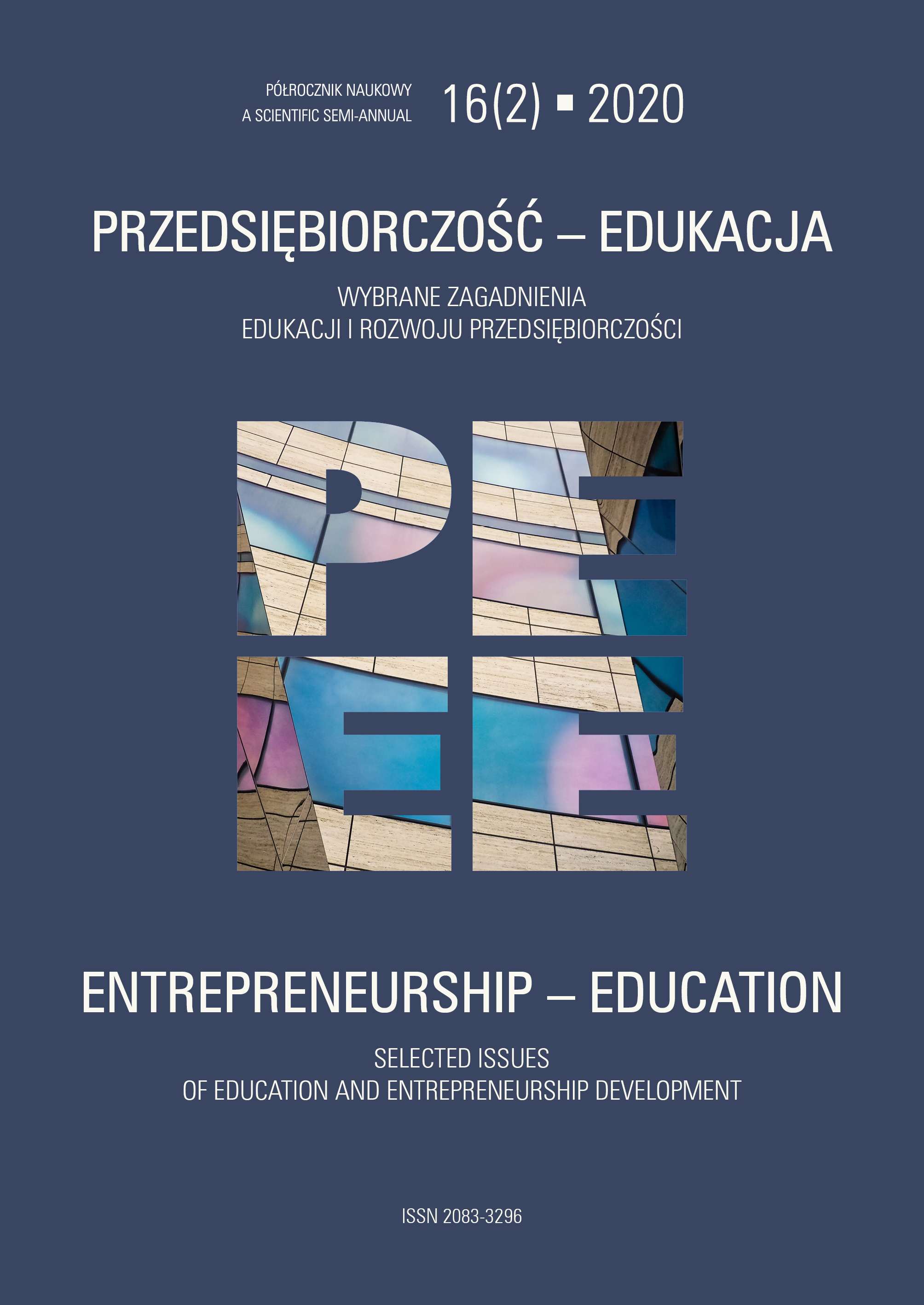Practical Education at Universities in the Opinion of Students of Social Economy
DOI:
https://doi.org/10.24917/20833296.162.10Keywords:
dual studies, practical training, social economyAbstract
The article presents a students’ assessment of the practical dimension of Social Economy as a field of study. To conduct the research, legal aspects describing the practical dimension of education were presented and social economy students were asked about the practical dimension of studying. Respondents answered questions related to the evaluation of the study programme, their involvement in undertaking non-learning activities, and they were also asked for recommendation for practical education. Complementing the research were questions related to their expectations for the chosen studies, general satisfaction and determining the feeling of their level of knowledge compared to the beginning of studies. The respondents indicated a low number of practical subjects and an insufficient number of economic subjects as the most significant shortcomings in the study program. 38.3% of respondents were also unable to determine the satisfaction of expectations regarding the choice of Social Economy as a field of study. The vast majority described their state of knowledge to be higher than before the start of studies. Research suggests that more emphasis should be placed on practical training and increasing the number of study visits. However, apart from work, they do not undertake individual initiative in gaining practical experience as only a small percentage of them engage in volunteering and activities in scientific circle; also a tiny number postulates an increase in the number of internships.
References
Deloitte. (2018). First Steps into the Labour Market, International survey of students and graduates. Central Europe 2018. Pozyskano z: https://www2.deloitte.com/content/dam/Deloitte/ce/Documents/about-deloitte/ce-first-steps-into-the-labour-market-2018.pdf
Fundacja Pracownia Jutr. (2015). Raport podsumowujący oczekiwania studentów i pracodawców w związku z organizacją praktyk i staży studenckich. Laboratorium Kariery. Rybik.
Hermann-Pawłowska, K., Leszczyńska, B., Trzciński, R., Sondej, K. (2015). Badanie ewaluacyjne o charakterze on-going identyfikujące dobre praktyki w realizacji praktycznych elementów kształcenia w projektach dofinansowanych w ramach IV Priorytetu PO KL oraz w innych działaniach w obszarze szkolnictwa wyższego. Raport końcowy. DANAE, IDEA. Pozyskano z: https://www.ncbr.gov.pl/fileadmin/user_upload/import/
tt_content/files/praktyczne_elementy_ksztalcenia_-_ewaluacja.pdf
Jarecki, W. (2015). Motywacje przy podejmowaniu studiów wyższych ekonomicznych. Annales. Etyka w Życiu Gospodarczym, 17(3), 133–141.
Maciejewski, W., Faron, A. (2019). Factor of choosing the tourism and recreation field of study in the context of the tourism sector development. W: M. Dolezalova, J. Mallinu, P. Scholz (red.), Topical Issues of Tourism, Tural Tourism – possibility for a destination. Jihlava: Published by College of Polytechnics Jihlava, 175–185.
Obwieszczenie Marszałka Sejmu Rzeczypospolitej Polskiej z dnia 26 października 2016 r. w sprawie ogłoszenia jednolitego tekstu ustawy – Prawo o szkolnictwie wyższym. Dz.U. 2016, poz. 1842.
Rozporządzenie Ministra Nauki i Szkolnictwa Wyższego z dnia 27 września 2018 r. w sprawie studiów. Dz.U. poz. 1668.
Rozporządzenie Ministra Nauki i Szkolnictwa Wyższego z dnia 5 października 2011 r. w sprawie warunków prowadzenia studiów na określonym kierunku i poziomie kształcenia. Dz.U. 243, poz. 1445.
Ustawa z dnia 31 stycznia 2019 r. o zmianie ustawy – Prawo o szkolnictwie wyższym i nauce. Dz.U. 2019 r., poz. 276.
Ustawa z 20 lipca 2018 r. Prawo o szkolnictwie wyższym i nauce. Dz.U. 2018 r., poz. 1668.
Ustawa z dnia 18 marca 2011 r. o zmianie ustawy – Prawo o szkolnictwie wyższym, ustawy o stopniach naukowych i tytule naukowym oraz o stopniach i tytule w zakresie sztuki oraz o zmianie niektórych innych ustaw. Dz.U. 2011 nr 84, poz. 455
Wydział Politologii. (2019, 29 października). Efekty kształcenia dla prowadzonych na Wydziale Politologii kierunków studiów. Pozyskano z: https://wpl.up.krakow.pl/student-2-2/efekty-ksztalcenia/
Downloads
Published
How to Cite
Issue
Section
License
Articles are published under the terms of the Creative Commons License (CC BY-ND 4.0; Attribution– NoDerivs).

